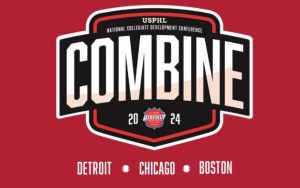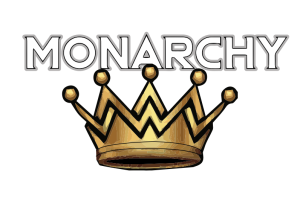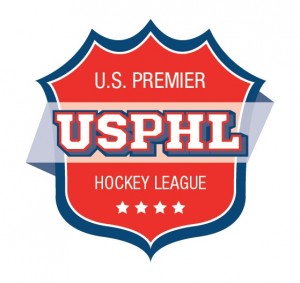Cancer survivor Chavira sets sights on new challenge: AIHL championship

Juaquin and Itan Chavira are inline hockey legends in their own time.
They have won numerous championships in just about every domestic and international tournament anyone can name. But one championship has eluded them: the American Inline Hockey League’s Elite/Pro Division Champions Cup.
The sibling duo is finally out to win it this year with the San Diego Tron Hosers.
“This is one league which I’ve never won, and I’d like to win it with San Diego,” explained Juaquin, who has represented Team USA with his brother while also winning several prestigious NARCh Pro titles. “I’ve competed for a long time. No matter what league or level you play in, you want to finish on top. I see this as another challenge.”
Challenges seem to define the brothers’ lives. Juaquin Chavira is a cancer survivor.
“I didn’t want it to get out at first,” Juaquin explained. “But when it did, all the love and support the hockey community gave me and my family … I’ll never change it.”
Flash back to June 2011. Juaquin was in the process of getting ready to defend the gold medal he had won at the 2010 International Ice Hockey Federation InLine Hockey World Championship with Team USA when his life took a sudden U-turn.
“I started noticing two or three weeks before I was going to leave, I was feeling weak, getting sick,” he recalled.
Chavira received a shock when he was diagnosed with Stage 4 cancer.
At 27, he suddenly found himself at death’s door.
“The plan was to do three hard sessions of chemo, and each intense session would be followed by a three-week break,” Chavira explained. “The total duration was expected to be three months to shrink the 17-by-11 centimeter tumor in my stomach to the point where surgery could be performed to remove the mass.
“You could feel the chemo eating you whole – inside and out. You could feel how powerful it was, doing its job.”
In an amazing show of courage and perseverance, he was declared cancer-free in September 2011.
“By the grace of God, the tumor was completely gone when they did the CT scan,” he said. “The doctors were so surprised they did a second CT-scan.”
Chavira called his battle with cancer one of the greatest challenges he has faced in his life, but one that he had the stubbornness to fight through.
“So many people get themselves down and so many people give up,” he explained. “I didn’t want to give up. I was a competitive hockey player who was taught never to give up. I wanted to do the same in life.”
The West Covina native also had dreams that wouldn’t die.
“I didn’t play high school sports because I thought I would play professional roller hockey,” explained Chavira, who grew up watching the Anaheim Bullfrogs of Roller Hockey International (RHI) in the 1990s. “All through high school, I wanted to play professional roller hockey. They had (RHI) going strong for about seven years, but it folded.”
But Chavira refused to fold himself.
Less than 10 days after he was declared cancer-free, he was playing in a hockey tournament, saying, “That was the one thing I wanted to do – go skate.”
The Chaviras are most associated with the L.A. Pama Cyclones, a staple in the NARCh Pro finals. The Cyclones’ rivalry with the Tour Mudcats during the Chavira brothers’ prime was the talk of the inline hockey community around the world.
The hockey community played a starring role in Juaquin’s recovery. Members of the Nijjar family, owners of the Cyclones, started the JuaqStrong Foundation to raise funds to pay for medical expenses and personal bills incurred while he was out of work.
Rink owners and rival organizations contributed, as did semi-professional leagues.
“When he was diagnosed with cancer, it was devastating to everyone who knew him,” NARCh president Daryn Goodwin explained. “But it was also incredible to see the roller hockey world unite and support him like a huge extended family. When he battled back from cancer to step into the competitive scene again, it was truly remarkable and a testament to his strong will and love for the game.”
As Juaquin regained his strength, his playing ability increased in time (he won a gold medal at the World Games in 2013) and so did his love for the game.
“It was a dynamic change for me, especially with me being older and having a family,” he said. “When my ability really picked up, it made it really fun again. It gave me the hunger to compete at that high level.”
Itan Chavira called his brother’s return to hockey “a true blessing.”
“He’s fallen in love with the sport again,” Itan said. “It’s always fun to play with my brother. It brings back a lot of good memories.”
And memories that are still in the making.
“We both complement each other,” Juaquin said. “He can do anything with the puck; I am more of a facilitator. I can contribute by scoring a goal or playing defense or providing leadership.
“I’m not the player I was, but I still have a high level of experience and the desire to try to make my teammates better and play at a higher level because that’s what it’s all about.”
Photo/NARCh
— Phillip Brents









